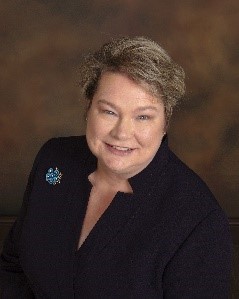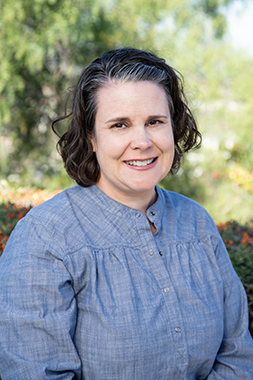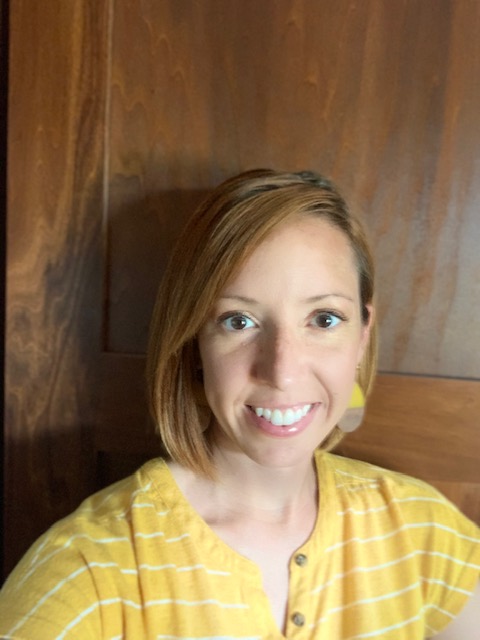
AHCA PDPM Academy 2020 Subscription– Building Optimal Operational Capacities©
- Registration Closed

AHCA’s PDPM Academy 2019 focused on the basic elements and technical aspects of the new patient characteristic-based payment model. In 2020, the AHCA subscription-based PDPM Academy will provide AHCA provider members with in-depth on-line education and training on best practice topics and operational capacities key to PDPM success.
Subscribers to the AHCA PDPM Academy 2020 – Building Optimal Operational Capacities© will receive the following benefits:
1. In-depth education will include six pre-recorded webinars starting in March 2020 with continuing education (CE) credits and accompanied by AHCA-developed guidance, tool kits, or other resources. The six (CE) educational webinars will be held throughout 2020 as they are completed. All six educational webinars are included in the $299 2020 PDPM Academy registration fee. The topics include:
- Getting Older is not for the Weak: An Evidence-Based Approach for Improving Mobility –In this training module, the RESTORE team, a collaborative group of researchers, educators, and professionals within the University of Colorado Physical Therapy Program will share an approach for helping providers integrate the latest evidence-based rehabilitation strategies into routine practice. Available Here
- Identifying and Managing Residents with Complex Nursing and NTA Needs – In this module, PDPM Academy participants will learn how members have attracted and retained nursing staff, best practices for staff training on complex care as well as optimal NTA services need identification and care. Available Here
- Restorative Nursing and Skilled Maintenance Nursing and Therapy – Nearly one-third of SNF resident stays would be eligible for restorative nursing case-mix payment adjustments within the PDPM Nursing Component. Additionally, new flexibilities in therapy service delivery permitted under PDPM create incentives to develop more effective restorative nursing programs to all Medicare Part A residents, including those on an active therapy care plan. This module will highlight restorative nursing and skilled maintenance nursing and therapy best practices under PDPM. Available here
- Medical Director’s Role in the SNF PDPM World - The recent transition of the Medicare Part A skilled nursing facility prospective payment system (SNF PPS) from a RUG-IV model primarily driven by therapy delivery to a patient driven payment model (PDPM) based on resident characteristics, including a new emphasis on admitting and comorbid diagnoses has escalated the importance of the role of the SNF medical director. The onset of the COVID-19 pandemic earlier this year escalated the value further. In this session, the presenter, a nationally known geriatrician and spokesperson for high quality SNF care, will describe how integrating the medical director more fully into the facility’s strategic as well as front-line PDPM-related operational and clinical activities in managing the care delivery of beneficiaries during a Medicare post-acute stay improves care. Available Here
- It's Called the Patient Driven Payment Model for a Reason - In the Fiscal Year 2019 Skilled Nursing Facility Prospective Payment System Final Rule and subsequent guidance, the Centers for Medicare and Medicaid Services (CMS) discussed the need for “holistic care planning” under the Patient Driven Payment Model (PDPM). Most research and policy on holistic care planning is associated with Medicaid-financed long-term care rather than Medicare-financed post-acute care. Of note, in the final Skilled Nursing Facility Requirements for Participation, CMS discusses a “comprehensive, person-centered care plan” indicating that CMS continues its focus on aligning payment policy with quality. Available Here
- Effective Care Transitions at Admission and Discharge –PDPM Academy participants will hear in this module from hospital discharge specialists, AHCA members, and home health intake specialists about their approaches to effective care transitions entering and exiting the SNF.
2. Five “live” PDPM Academy Open Discussion Forums (ODF) every other month (one-hour each) starting January 2020, addressing challenging PDPM clinical and billing topics and CMS updates.
3. Access to AHCA’ library of 2019 and 2020 PDPM Academy materials housed at ahcancalED.
These resources are a considerable value to AHCA members. Private consultancies will charge several hundreds of dollars for the resources and the six hours of CE eligible training on the topics above.
Access to all of the benefits, above, is available to AHCA provider member individual employees (or individual contracted employees if registering through the AHCA provider member) via a PDPM Academy 2020 subscription price of $299 including CEs for the entire year.
Advanced Search This List
-
Contains 3 Component(s), Includes Credits
In the Fiscal Year 2019 Skilled Nursing Facility Prospective Payment System Final Rule and subsequent guidance, the Centers for Medicare and Medicaid Services (CMS) has discussed the need for “holistic care planning” under the Patient Driven Payment Model (PDPM). Most research and policy on holistic care planning is associated with Medicaid-financed long-term care rather than Medicare-financed post-acute care (PAC). Of note, in the final Skilled Nursing Facility Requirements for Participation, CMS discusses a “comprehensive, person-centered care plan.” Such alignment continues CMS’ focus on aligning payment policy with quality.
In the Fiscal Year 2019 Skilled Nursing Facility Prospective Payment System Final Rule and subsequent guidance, the Centers for Medicare and Medicaid Services (CMS) has discussed the need for “holistic care planning” under the Patient Driven Payment Model (PDPM). Most research and policy on holistic care planning is associated with Medicaid-financed long-term care rather than Medicare-financed post-acute care (PAC). Of note, in the final Skilled Nursing Facility Requirements for Participation, CMS discusses a “comprehensive, person-centered care plan.” Such alignment continues CMS’ focus on aligning payment policy with quality.
Learning Objectives:
- Possible models for Post-Acute Care Comprehensive, Person-Centered Care Planning which also align with CMS’ vision for “holistic care planning.”
- Operational approaches for moving to and maintaining a day-to-day culture of person-center care delivery & quality measurement.
- Business case for person-centered care – benefits for patients, staff, and providers.

Cathy Ciolek, DPT, GCS, FAPTA
President of Living Well With Dementia, LLC
Dr. Ciolek is President of Living Well With Dementia, LLC- providing education and consultation to promote well-being and positive expectations for people with dementia. She has nearly 30 years physical therapy clinical experience working with older adults across the continuum of care including as staff PT, Director of PT and Director of Rehab in a skilled nursing facility and a not-for-profit continuing care retirement community. She served as Regional Director for the Pennsylvania Restraint Reduction Initiative (PARRI) and as a faculty member in the Department of Physical Therapy at the University of Delaware. Additionally, Cathy is Board Certified Geriatric Clinical Specialist, a Certified Dementia Practitioner® as well as a Certified Alzheimer’s Disease and Dementia Care Trainer®. She was recently recognized as a Catherine Worthingham Fellow of the American Physical Therapy Association for her advocacy efforts for older adults.

Erin Westphal, MSG
Program Officer, The SCAN Foundation

Laci Cornelison, MS, LBSW, ACHA
Kansas State University Center on Aging, PEAK 2.0 Director
AHCA’s PDPM resources for all provider members in 2019 focused on the basic elements and technical aspects of the new patient characteristic-based payment model and included AHCA developed tools, resources and webinars as well as access to numerous PDPM-related CMS and other public domain resources. In 2020, the AHCA PDPM Resources Page will continue to provide basic PDPM education all AHCA provider members as listed below.
The following free PDPM resources will be available to all AHCA provider members:
- All-Provider member PDPM webinars
- FY 2021 SNF PPS Proposed Rule Summary (est. May 2010)
- FY 2021 SNF PPS Final Rule Summary (est. August 2020)
- New or updated all-provider member tools and resources as they are developed (TBD)
- Access to CMS and other PDPM-related public-access resources
- Access to AHCA’s library of 2019 and 2020 all-member materials housed at ahcancalED
AHCA is offering the following PDPM-Related fee-based products and services in 2020 to support SNF personnel in improving care delivery best practices and in building optimal operational capacities.
These items are not inlcuded in your PDPM Academy subscription. Each resource will have a separate fee.
- PDPM ICD-10 Coding Training (January 2020) (Members and Non-Members)
- AHCA/AHIMA ICD-10 Training for PDPM – Coder/Clinician
- 2020 Full Version (16 Hours & CEs)
- 2020 Refresher Version (Hours TBD & CEs)
- AHCA/AHIMA ICD-10 Training for PDPM – Non-Coder – 2020 Full Version (4 Hours & CEs)
- i-STRONGER Online/Interactive High-Intensity Rehabilitation Program Training for Physical and Occupational Therapy Clinicians (May 2020) (12+ Hours) (Members and Non-Members)
- Patient Pathway Platform (P3) Report Subscription (containing local market hospital referral data, SNF LOS data, SNF market PDPM data, and top referring hospital PDPM data) (January 2020) (Provider Members Only)
- PDPM Medicare Advantage Education & Negotiation Guidance (release TBD) (Provider Members Only)
-
Contains 3 Component(s), Includes Credits
In the Fiscal Year 2019 Skilled Nursing Facility Prospective Payment System Final Rule and subsequent guidance, the Centers for Medicare and Medicaid Services (CMS) has discussed the need for “holistic care planning” under the Patient Driven Payment Model (PDPM). Most research and policy on holistic care planning is associated with Medicaid-financed long-term care rather than Medicare-financed post-acute care (PAC). Of note, in the final Skilled Nursing Facility Requirements for Participation, CMS discusses a “comprehensive, person-centered care plan.” Such alignment continues CMS’ focus on aligning payment policy with quality.
In the Fiscal Year 2019 Skilled Nursing Facility Prospective Payment System Final Rule and subsequent guidance, the Centers for Medicare and Medicaid Services (CMS) has discussed the need for “holistic care planning” under the Patient Driven Payment Model (PDPM). Most research and policy on holistic care planning is associated with Medicaid-financed long-term care rather than Medicare-financed post-acute care (PAC). Of note, in the final Skilled Nursing Facility Requirements for Participation, CMS discusses a “comprehensive, person-centered care plan.” Such alignment continues CMS’ focus on aligning payment policy with quality.
Learning Objectives:
- Possible models for Post-Acute Care Comprehensive, Person-Centered Care Planning which also align with CMS’ vision for “holistic care planning.”
- Operational approaches for moving to and maintaining a day-to-day culture of person-center care delivery & quality measurement.
- Business case for person-centered care – benefits for patients, staff, and providers.

Cathy Ciolek, DPT, GCS, FAPTA
President of Living Well With Dementia, LLC
Dr. Ciolek is President of Living Well With Dementia, LLC- providing education and consultation to promote well-being and positive expectations for people with dementia. She has nearly 30 years physical therapy clinical experience working with older adults across the continuum of care including as staff PT, Director of PT and Director of Rehab in a skilled nursing facility and a not-for-profit continuing care retirement community. She served as Regional Director for the Pennsylvania Restraint Reduction Initiative (PARRI) and as a faculty member in the Department of Physical Therapy at the University of Delaware. Additionally, Cathy is Board Certified Geriatric Clinical Specialist, a Certified Dementia Practitioner® as well as a Certified Alzheimer’s Disease and Dementia Care Trainer®. She was recently recognized as a Catherine Worthingham Fellow of the American Physical Therapy Association for her advocacy efforts for older adults.

Erin Westphal, MSG
Program Officer, The SCAN Foundation

Laci Cornelison, MS, LBSW, ACHA
Kansas State University Center on Aging, PEAK 2.0 Director
AHCA’s PDPM resources for all provider members in 2019 focused on the basic elements and technical aspects of the new patient characteristic-based payment model and included AHCA developed tools, resources and webinars as well as access to numerous PDPM-related CMS and other public domain resources. In 2020, the AHCA PDPM Resources Page will continue to provide basic PDPM education all AHCA provider members as listed below.
The following free PDPM resources will be available to all AHCA provider members:
- All-Provider member PDPM webinars
- FY 2021 SNF PPS Proposed Rule Summary (est. May 2010)
- FY 2021 SNF PPS Final Rule Summary (est. August 2020)
- New or updated all-provider member tools and resources as they are developed (TBD)
- Access to CMS and other PDPM-related public-access resources
- Access to AHCA’s library of 2019 and 2020 all-member materials housed at ahcancalED
AHCA is offering the following PDPM-Related fee-based products and services in 2020 to support SNF personnel in improving care delivery best practices and in building optimal operational capacities.
These items are not inlcuded in your PDPM Academy subscription. Each resource will have a separate fee.
- PDPM ICD-10 Coding Training (January 2020) (Members and Non-Members)
- AHCA/AHIMA ICD-10 Training for PDPM – Coder/Clinician
- 2020 Full Version (16 Hours & CEs)
- 2020 Refresher Version (Hours TBD & CEs)
- AHCA/AHIMA ICD-10 Training for PDPM – Non-Coder – 2020 Full Version (4 Hours & CEs)
- i-STRONGER Online/Interactive High-Intensity Rehabilitation Program Training for Physical and Occupational Therapy Clinicians (May 2020) (12+ Hours) (Members and Non-Members)
- Patient Pathway Platform (P3) Report Subscription (containing local market hospital referral data, SNF LOS data, SNF market PDPM data, and top referring hospital PDPM data) (January 2020) (Provider Members Only)
- PDPM Medicare Advantage Education & Negotiation Guidance (release TBD) (Provider Members Only)
